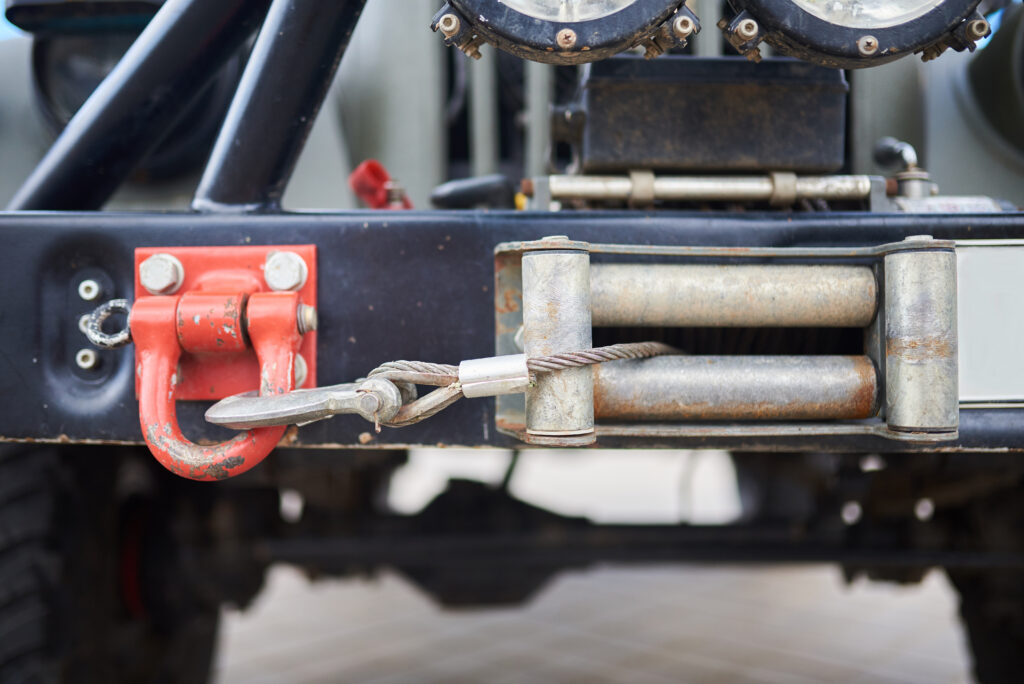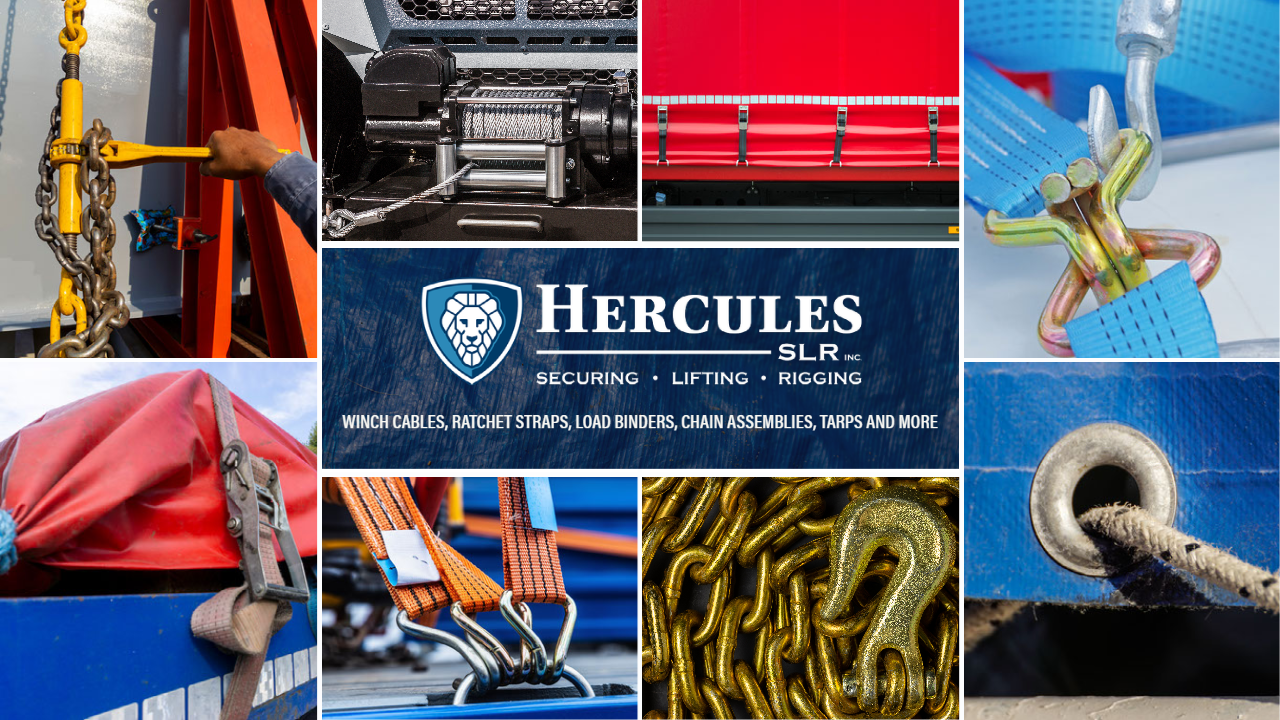Winch Cables while you wait, at Hercules Dartmouth
Winch Cables while you wait, at Hercules Dartmouth
Our Hercules Head Office and Nova Scotia branch location are situated in Dartmouth, NS. As the City of Halifax is a major shipping port, our products and services facilitate a wide range of interconnected industries, starting with the dockyards themselves and extending out across transportation, construction, energy, infrastructure to name just a few.
In this blog we are going to shine a light on tow winches.
Whether you’re in construction, engineering, or the oil and gas industry, or even the circus, it’s likely you’ll use winches and other lifting equipment from time to time.

Hercules SLR can replace your tow truck winch cable while you wait. We know time off the road means inconvenience and possibly lost revenue. The process takes around 15-20 minutes.
We offer wire rope as well as Dyneema rope cut to customized lengths for tow truck drivers. Dyneema fibre rope is a synthetic rope that has a comparable breaking strength to that of wire rope.
There are pros and cons for both types of winch cable but, ultimately, it’s most important you make the right decision for you and your business requirements. The wire winch rope diameter you need to use is dependent on the winch you have installed on your vehicle. When replacing the winch wire rope that is on your winch you will need to know the diameter. This information can be found on the manufacturer’s specification plate attached to the body of the winch. The rope diameter will then dictate up to what maximum weight you will then be able to safely pull with your winch.
Here are some commonly asked questions relating to winch cable replacement Can I replace winch cable with synthetic rope? Can you put synthetic rope on a cable winch? Yes, you can put synthetic rope on a winch designed for steel cable. However, the brake drum in the winch might not be able to cool as well because steel cable acts like a heat sink, while synthetic rope may act more like an insulator trapping heat.
Synthetic Rope vs. Steel Cable: Which is the Better Option?
Synthetic Rope:
Made from Dyneema, synthetic rope is significantly lighter than steel cable and has a higher breaking strength. It can also be repaired on-site with proper braiding techniques. Synthetic rope is also highly flexible and lighter in weight, meaning it is easier to handle and less prone to kinking, curling, or splintering than steel cable is. It has minimal stretch with no rotation. Given that it isn’t made of metal, synthetic rope won’t develop rough edges known as burrs, making it much safer to handle without gloves. While it does have many advantages, synthetic rope isn’t perfect. Drawbacks include susceptibility to UV exposure, heat, chemicals, and abrasion, which can all substantially weaken the rope. Some synthetic ropes come with protective sleeves and coatings that help mitigate the impact of these factors.
Another disadvantage is that it can hold water, which will add weight and might even freeze in cold weather, rendering the winch useless. They also require considerable maintenance. This is especially true when used in sandy or muddy conditions where abrasives can work their way into the rope and weaken it from the inside.
Wire Rope:
Given its durable nature, steel cable is the best choice for lifting tasks involving abrasive terrains such as mud, rocks, and sand. This is because it is far less prone to fraying and abrading. Steel cable is also the better option for those on a tighter budget, as it is initially more affordable and requires less maintenance. While, again, steel cable has many advantages, there are also several disadvantages. It is metal, so is prone to rusting and developing sharp and potentially harmful burrs as it wears. This means you’ll need to wear gloves whenever operating lifting equipment that uses steel cable.
Steel is also prone to kinks, which can make it harder to spool up on the cable drum properly and decrease its strength.
Should you lubricate a steel winch cable?
While the cable may look healthy on the outside, the inner core may be significantly weakened due to rust and corrosion. This is why it’s important to use a dedicated winch cable lubricant that deeply protects the cable from the inside out.
What is a fairlead? A fairlead is a device to guide a line, rope, or cable around an object, out of the way or to stop it from moving laterally. Typically, a fairlead will be a ring or hook.
How strong does my winch cable do I need? you should have a breaking strength of 1.5 to 2 times the pulling power of the winch. For example, if you have a winch with a 9,000 lb pulling capacity, the line should have a breaking strength in the range of 13,500 to 18,000 lbs or higher.
Should the winch hook be facing up or down? Make sure the winch hook is facing up. This ensures that the hook is forced down into the ground if it fails. A flying hook is a hazard on both steel cable and synthetic rope.
Whether you need a replacement winch cable, ratchet straps, tie downs, chain assemblies, load binders, industrial tarps, winch hooks or rigging accessories give us a call: (902) 468-0300 or stop by our store at: 520 Windmill Road, Dartmouth, or buy online! We are your single source supplier for all your rigging and securing requirements.
——————————————————————————————————————————————
The Hercules Group of Companies encompasses a wide portfolio of products and services across 7 diverse companies.



